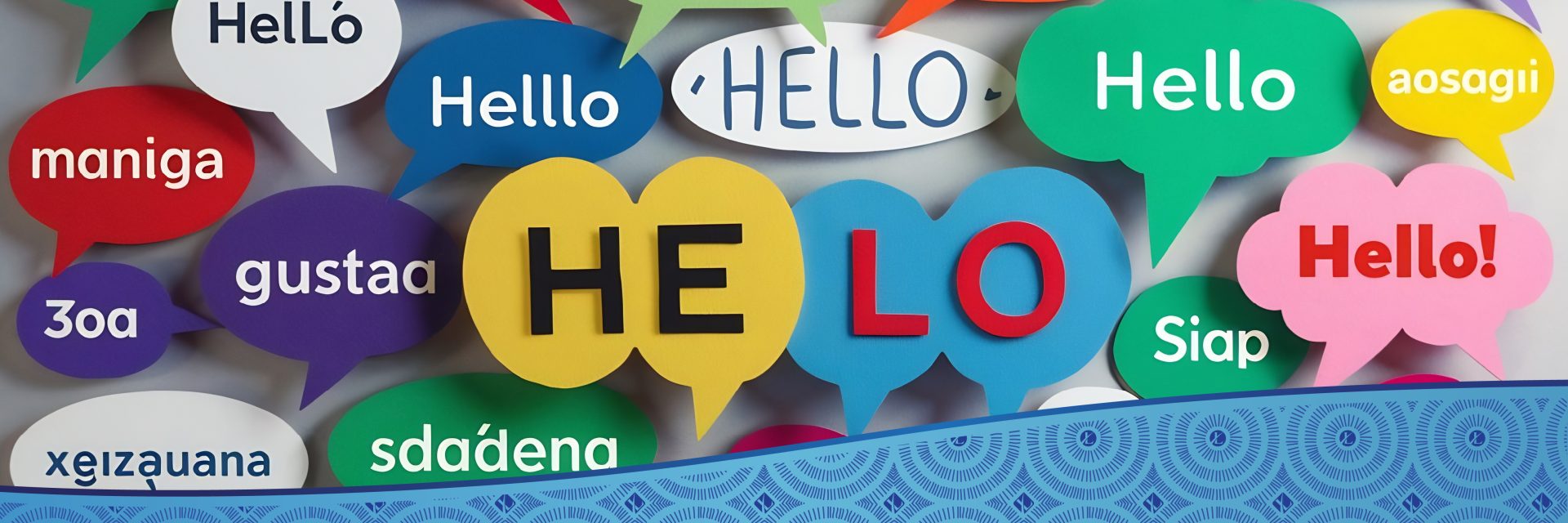
13 Nov Unlocking the World Through Words: Language and Informational Texts
Unlocking the World Through Words: Language and Informational Texts
We’re living in a time where information moves faster than ever before.
The Information Age—also called the Digital Age or the Age of Big Data—is reshaping how we live, work, and connect. Every second, new ideas, discoveries, and innovations are created and shared across the world, fuelled by technology, digital communication, and the internet. Unlike past eras shaped by agriculture or industry, today’s world is driven by data, knowledge, and limitless connectivity. The question is no longer how we access information, but how we make sense of it all.
A World Fuelled by Data and Connectivity
The Information Age has revolutionised how we live, learn, and work, but it also presents challenges such as digital misinformation, privacy concerns, and the digital divide. As technology continues to evolve, developing skills like critical thinking, digital literacy, and responsible technology use will be essential for navigating an increasingly connected world.
Interpreting and understanding factual and informational texts is a critical skill—especially for language learners. While fiction and conversational language have their place in developing fluency, newspaper articles and similar non-fiction texts provide unique benefits that prepare learners for real-world engagement.
Informational Texts Build Real-World Skills
Reading informational texts, such as newspaper articles and factual reports, helps learners develop practical literacy skills they can use in everyday life. These texts expose them to real-world language found in announcements, advertisements, schedules, and news updates, making it easier to navigate situations like reading a bus timetable, understanding medical instructions, or keeping up with current events. This type of reading strengthens functional literacy, giving learners the confidence to engage with important information that impacts their daily lives.
Beyond practical skills, informational texts also build critical thinking. Unlike fictional stories, factual texts often include a mix of facts, opinions, and interpretations, requiring readers to evaluate sources, identify biases, and form their own conclusions. Engaging with these materials teaches learners to go beyond surface-level reading by analysing key points, questioning the reliability of information, and recognising when content is influenced by bias. In an era of misinformation and fake news, these skills are essential for making informed decisions, understanding different perspectives, and participating thoughtfully in discussions about important social issues.
The Digital Age Demands More
Strong informational literacy skills are essential today as information is constantly being created, shared, and repurposed. In the digital age, we’re also using those skills for:
- Deciphering online reviews and consumer decisions: With the rise of e-commerce, people rely heavily on reviews before making purchases. Being able to identify authentic vs. manipulated reviews, understand marketing tactics, and analyse product descriptions helps consumers make informed choices.
- Evaluating health and wellness information: The internet is filled with conflicting health advice, diet trends, and medical claims. Understanding scientific studies, medical reports, and government guidelines helps people distinguish between credible health information and misleading claims.
- Interpreting data visualisations and infographics: News articles, social media, and research reports frequently use graphs, charts, and statistics to present information. Without strong informational literacy, it’s easy to misinterpret data or fall for misleading visuals designed to manipulate opinions.
- Recognising clickbait and sensationalised headlines: Many online platforms use exaggerated headlines to drive traffic. Knowing how to read beyond the headline, check sources, and identify emotional manipulation prevents people from being misled or spreading misinformation.
- Understanding algorithmic bias and personalised content: Social media and search engines use algorithms to show content tailored to individual preferences. Recognising how algorithms filter information and shape opinions is crucial for avoiding echo chambers and seeking diverse perspectives.
- Navigating terms of service and privacy policies: Many people agree to terms and conditions without reading them. Being able to understand legal and technical language in digital contracts, app permissions, and privacy agreements helps users protect their data and online rights.
- Assessing the credibility of crowdsourced information: Platforms like Wikipedia, Reddit, and Quora provide valuable information but also contain inaccuracies. Knowing how to fact-check user-generated content and cross-reference sources ensures that information is reliable.
- Decoding political and social media narratives: Digital platforms amplify political messaging and activism. Understanding how language, framing, and emotional appeals shape public opinion helps people engage in political discussions critically rather than being easily swayed by propaganda.
- Identifying deepfakes and manipulated media: AI-generated content, deepfake videos, and altered images are becoming more common. Being able to spot inconsistencies, verify sources, and use fact-checking tools is essential for separating truth from deception.
- Making sense of open data and citizen journalism: Governments and organisations release vast amounts of public data, while everyday people report breaking news online. Being able to interpret public records, investigative reports, and firsthand accounts helps individuals engage with information in a meaningful way.
More Than Just Language
In a world where digital information is everywhere, developing the ability to critically read and analyse informational texts is no longer just a helpful skill—it’s a necessity for making informed decisions, protecting personal interests, and navigating modern life with confidence.
Teaching language learners to understand and interpret newspaper articles and other factual texts is more than a linguistic exercise—it’s a life skill. This practice equips learners with the tools to engage with the world, think critically, and grow as informed global citizens. Mastering the art of understanding informational texts doesn’t just teach language—it equips learners to lead, question, and thrive in an ever-changing world. So, the next time you’re crafting a lesson plan or tackling a new language, remember this: informational texts aren’t just tools for learning—they’re gateways to understanding the world. Happy reading and happy teaching!
By Chantal Tarling

